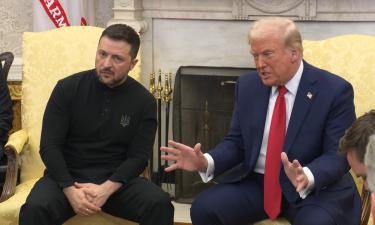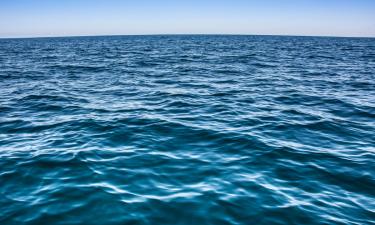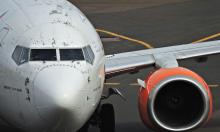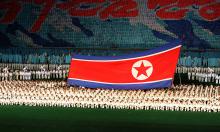Ukraine, Russia work on demarcating Azov-Kerch water area
The 20th round of negotiations between delegations of the Ukrainian and Russian Foreign Ministries on delimiting the Azov-Kerch water area started on Wednesday in Kerch (Eastern Crimea, Ukraine). According to the Ukrainian Foreign Ministry's press service, during the two-day negotiations, the sides plan to consider draft bilateral treaties on the Ukrainian-Russian border and the Sea of Azov and the Kerch Strait (connects the Sea of Azov with the Black Sea) use regime.
The diplomats will pay much attention to different versions of the border in the Sea of Azov and the Kerch Strait. Work on coordinating the geographical location of the borderline will also continue.
Apart from that, the sides intend to discuss the progress in drafting bilateral Ukrainian-Russian treaties on the protection of the marine environment, ecological safety, navigation and fishing in the Sea of Azov and the Kerch Strait.
Deputy Foreign Minister Viktor Kalyuzhny is heading the Russian delegation and Deputy Foreign Minister Alexander Motsik is leading the Ukrainian delegation.
The issue of demarcating the Azov-Kerch water area began to be actively discussed after the Krasnodar authorities (Russian Federation) began constructing a dam from the Taman Peninsula toward the Ukrainian island of Kosa Tuzla in September-October 2003. The construction stopped when the dam reached 102 meters from the Ukrainian-Russian border and after the negotiations between the Ukrainian and Russian presidents in Kerch on October 23, 2003.
On October 24, 2003, the sides signed a treaty on cooperation in using the Sea of Azov and the Kerch Strait. Under this document, the Sea of Azov and the Kerch Strait are the internal waters of the two countries, the Sea of Azov is divided along the border and the Kerch Strait is used in accordance with an agreement between the sides.
Merchant vessels, naval ships and other vessels (non-commercial and flying the Ukrainian or Russian flag) enjoy freedom of shipping in the Azov-Kerch water area. Merchant ships from a third country can enter the Kerch Strait and the Sea of Azov if they are headed toward or returning from a Russian or Ukrainian port. Naval or non-commercial ships from a third country can enter this water area only if they are invited by or have an agreement with either Russia or Ukraine.
The document notes that Ukrainian-Russian cooperation will be carried out through implementing existing agreements and signing new ones. Cooperation is envisaged in the following spheres: shipping, including regulation, navigation, cartography; fishing; protection of the marine environment; ecological safety; and search and rescue operations in the water area.
The treaty was ratified by the parliaments of Russia and Ukraine, and the presidents exchanged the instruments of ratification during their meeting in the Crimea on April 23, 2004.
In the course of the previous rounds of the negotiations, Ukraine insisted on the preservation of the border in the Kerch Strait that was established in the Soviet times. The Russian side insisted on revising the border in the strait.
"The Kosa Tuzla island is not the main obstacle in delimiting the Azov-Kerch water area," Mr. Kalyuzhny said on April 5. "This question will be solved automatically when the issue of delimiting the Azov-Kerch water area is resolved."
Subscribe to Pravda.Ru Telegram channel, Facebook, RSS!





